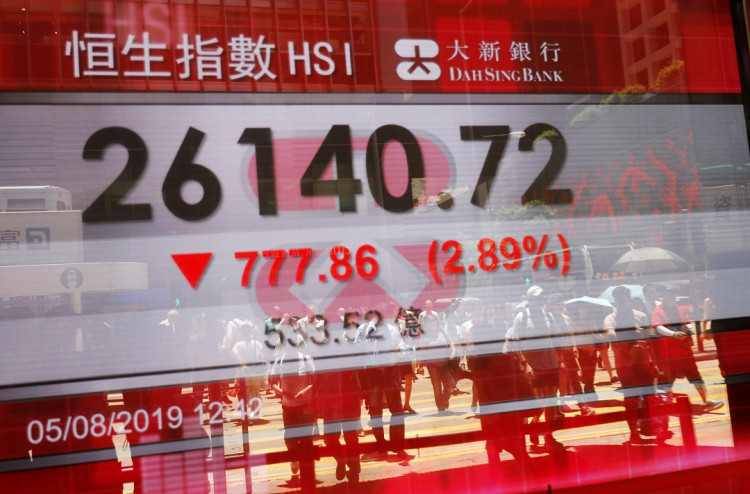The already fragile trade ceasefire between China and the United States has been broken. With both countries expected to once again initiate trade actions against each other, global markets are reacting accordingly.
Hong Kong stock, in particular, fell to its lowest point in over two months late last week as investors react to the sudden escalation in the trade conflict.
Major Hong Kong Indices fell late last week following Trump's announcement that he would be applying a 10 percent tariff on an additional $300 billion worth of Chinese goods in September.
The tariffs will apparently also increase incrementally throughout various stages, likely going beyond 25 percent.
Hong Kong stocks reacted quickly to the news, with the Hang Seng Index falling by 2.35 percent to 26,918.58. The fall was the index' biggest decline since May 9 and the lowest it has been since June 5. The drop dragged the index to a 5.2 percent loss for the entire week.
The Shanghai Composite Index also dropped by 1.4 percent to 2,867.84, the largest single-day decline since July 8. Blue-chip tracking index for Shenzhen and Shanghai CSI 300 declines by 1.5 percent to 3,747.44.
Blue-chip equities also saw significant drops led by Tencent Holdings, which fell by 3.8 percent. Ping An Insurance's shares also dropped by 2.5 percent.
Other blue-chip stocks that dropped following news of the end of the trade ceasefire include AIA, which fell by 1.9 percent, and exchange operator Hong Kong Exchange & Clearings, which fell by 3.2 percent.
Analysts predict that the negative economic outlook brought about by civil unrest has only been exacerbated by the deterioration of the trade negotiations between China and the United States.
The overall geopolitical impact on the city-state's markets has caused its second-quarter GDP to contract by 0.3 percent when compared to the same quarter last year. Overall economic growth had missed analyst's expectations for the quarter.
While most of the stocks are expected to rebound from the initial effect of investor sentiments, analysts predict that the rebound could be limited. Most of the stocks could also be trading within a very tight range within the next few weeks as investors try to determine the next possible moves by both China and the US.
Some stocks did experience bullish runs as direct reactions to Trump's tariff threats. Rare earth-related stocks surged last week, with most hitting daily limit ceilings. Investors placed heavy bets on the stocks, expecting a market boost from the heightened tensions.






